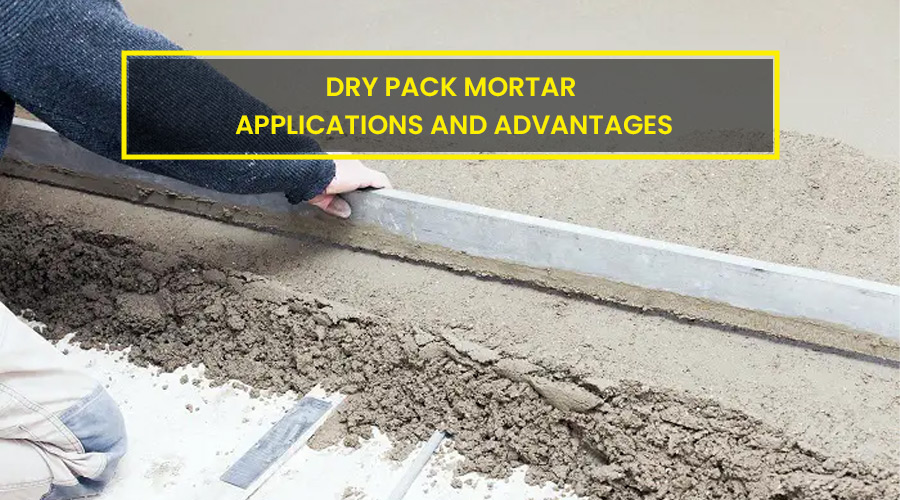Introduction
Dry-pack mortar is a specialized type of mortar commonly used in construction and masonry applications. It offers unique properties and advantages that make it suitable for specific uses. In this blog post, we will explore the applications of dry-pack mortar and discuss its key advantages.
Definition and Composition
Dry-pack mortar, also known as dry-pack concrete or deck mud, is a blend of sand, cement, and water. Unlike traditional mortar, it has a lower water-to-cement ratio, resulting in a drier and stiffer mixture. The reduced water content enhances its ability to support heavy loads and provides excellent durability.
Applications
Dry-pack mortar finds various applications in construction and masonry projects, including
a. Shower and Bathroom Installation: It is commonly used for sloping shower floors and creating shower pans, ensuring proper drainage.
b. Floor Underlayment: Dry-pack mortar serves as a leveling layer beneath tile, stone, or other floor finishes.
c. Pool and Fountain Construction: It is used for building the base and slopes of pools and fountains, providing a sturdy foundation.
d. Masonry Repairs: Dry-pack mortar is ideal for repairing deteriorated masonry, such as bricks or stone.
e. Waterproofing: It can be utilized as a waterproof layer in basements or other areas prone to water infiltration.
Advantages
Dry-pack mortar offers several advantages over traditional mortar options, making it a preferred choice in specific situations:
a. Load-Bearing Capacity: Its low water content and higher density contribute to increased load-bearing capacity, making it suitable for supporting heavy loads.
b. Minimal Shrinkage: Dry-pack mortar exhibits minimal shrinkage during the curing process, reducing the likelihood of cracks and ensuring long-term stability.
c. Excellent Bonding: It forms a strong bond with the substrate, providing enhanced structural integrity.
d. Precise Sloping: Its drier consistency allows for easy shaping and forming of slopes, ensuring proper water drainage in applications like shower floors.
e. Rapid Setting: Dry-pack mortar typically sets quickly, allowing for faster completion of projects.
Installation Tips
When working with dry-pack mortar, consider the following tips:
a. Proper Mixing: Ensure thorough mixing of sand, cement, and water to achieve a consistent mixture. Follow the manufacturer’s instructions for proportions.
b. Gradual Moistening: Add water gradually while mixing to avoid excessive moisture content, as it can compromise the strength and performance of the mortar.
c. Compaction: Pack the mixture firmly into place, eliminating voids and air pockets for optimal strength.
d. Curing: Allow sufficient time for the mortar to cure and achieve its full strength before subjecting it to heavy loads or finishing applications.
Conclusion
Dry-pack mortar is a versatile construction material with numerous applications and advantages. Its ability to provide excellent load-bearing capacity, minimal shrinkage, and precise sloping makes it a valuable choice for specific projects. When considering a construction or masonry application that requires strength, durability, and stability, dry-pack mortar can be an excellent solution.

